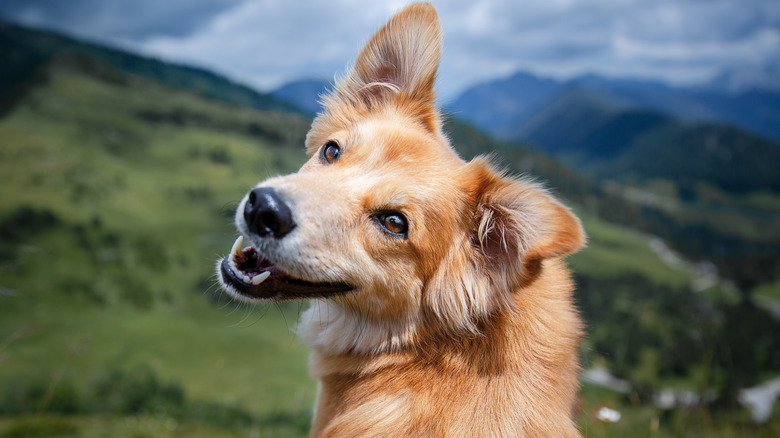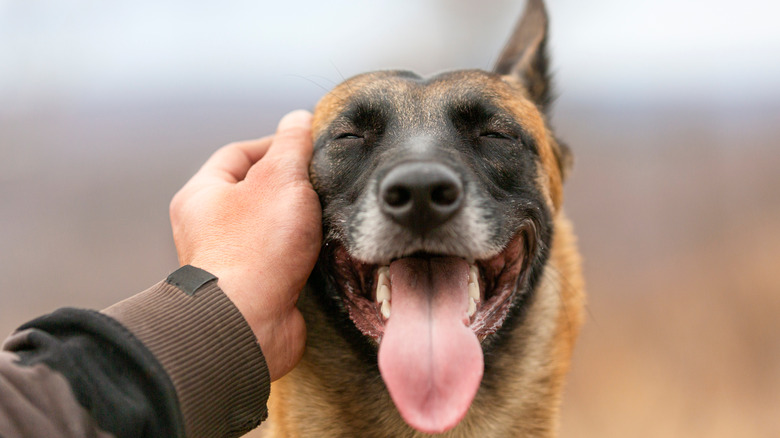Do Humans Have To Worry About Passing Monkeypox To Their Canine Friends?
When terrible things happen to humans, it's hard to deal with, but when they befall pets, somehow, it's worse. As if recent monkeypox outbreaks weren't bad enough, worry has shifted to possible transmission of the virus to man's best friend.
According to the World Health Organization, monkeypox is a virus, similar to smallpox, that was first identified in humans in 1970. It is transmitted to humans from animals, with many rodents and non-human primates being susceptible and common hosts. Commonly known transmission methods from animals to humans include direct contact with blood, bodily fluids, or the lesions of infected animals. Human-to-human transmission can occur from respiratory secretions, skin lesions, or contact with recently contaminated objects.
Monkeypox symptoms usually begin within three weeks after exposure, as per the Centers for Disease Control and Prevention (CDC). The symptoms of infection by the virus can include a painful or itchy rash that may blister or scab, exhaustion, headache, fever, chills, respiratory issues, and swollen lymph nodes. The virus can usually be spread for about two to four weeks, from when symptoms arise until the rash is completely healed and new skin has returned. Recent reports, such as one from Brazil (per Secretaria de Estado de Saúde) and another one from France (via The Lancet), have caused concern as they point to humans being able to transmit the virus to their household pets. What does this mean for the virus?
Owners could spread monkeypox to pets
The worry of the virus being spread from humans to animals is that this could lead to new populations of wild animals around the world being prevalently infected and circulating the virus, making it difficult to control (per NBC News). Davidson Hamer, professor of global health and medicine at the Schools of Public Health and Medicine, explained to Boston University, "The introduction of the virus into domestic and wild animal populations, is a major concern, as it may lead to the virus becoming endemic." Luckily a more recent study helps to quell those fears.
A study published by Eurosurveillance found that of 154 pets owned by those with confirmed monkeypox infections, 0 were consequently reported infected with the virus. The study concluded that the risk of owners infecting their pets is present but considered low. While they believe some underreporting could be possible, they still don't think there is a significant concern surrounding owners transmitting to pets.
To avoid spreading the virus to your pets, avoid petting, hugging, kissing, cuddling, licking, and sharing food or sleeping areas with pets, reports the Centers for Disease Control and Prevention. Those with monkeypox should avoid contact with all animals and humans to avoid spreading the virus; uninfected pets should be left with a caretaker away from the infected owner's home. If your pet shows any signs of monkeypox, treat them as infected to prevent additional spreading, and contact a local veterinarian for testing and further advice.


